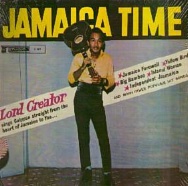CSME -- Offense or Defense?

In a recent conference on the impact of the CARICOM Single Market and Economy (CSME) there was a presentation by a representative of CSME. During her presentation it struck me that the reasons being given for the implementation of CSME were defensive rather than offensive.
In other words, the CSME was being formed to protect the region from the adverse effects of being very small countries. It seems that in key negotiations, our territories have suffered from not having sufficient clout in important international negotiations.
In short, CSME will enable us build a trading bloc that will enable our governments to accomplish more.
There is nothing wrong with this rationale, except that it's all about reacting to circumstances, and attempting to right a weakness.
As a business-person, however, I think that while that objective is a worthwhile one, it doesn't do a whole lot in the short term for my business.
And this is the challenge -- CSME is not being sold with enough of a vision to attract the average man.
I am sure there are people who are creating such a vision, but they are yet to be heard from.
I wonder if this has something to with Federation, and whether it was not fulfilled due to Jamaica's 1962 withdrawal? Are people feeling that if they create too big a vision for the region, then the old suspicions will be rekindled, and a collapse would ensue?
Or is it that there is a subtle fear that if CSME is too successful, then our countries will be overrun by foreigners from the countries that we are not so fond of?
There needs to be a much more clear vision for the new world that CSME is creating, and I'm going to get the ball rolling by painting the picture for myself.
Labels: commentary
Read more!







